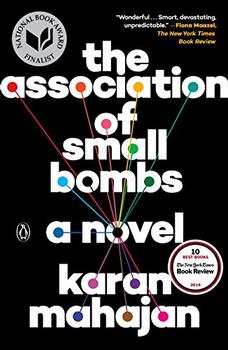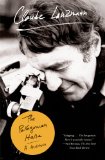Summary | Excerpt | Reviews | Beyond the book | Read-Alikes | Genres & Themes | Author Bio

A Jerusalem Memoir
by Emma WilliamsThe conflict between the Israelis and the Palestinians is remote to most of us in the West - an abstract that one glosses over as one reads the morning paper. We hear of the suicide bombers and the checkpoints and it's easy to dismiss these stories as just another act of violence in a place that's far, far away. Emma Williams' book, It's Easier to Reach Heaven than the End of the Street, goes a long way toward bringing this conflict into our living rooms, helping us to understand its complexities and explaining its human toll, putting a face to those suffering its effects.
When the Intifada erupted in September 2000, Williams was in a unique position as a British doctor, wife and mother living in Jerusalem. Her friends and co-workers included both Palestinians and Israelis, which allowed her to gather unvarnished opinions from both sides of the dispute. Using this inside information she completely captures the thoughts of the people with whom she mixed, relaying their opinions without judgment. She truly understands both points of view and how and why her friends' attitudes evolved over time, and unreservedly conveys this to her readers - vividly detailing the decline in relations between the two peoples as the violence escalated.
Her circumstances, as a parent in the midst of a potentially violent atmosphere, also provides a rarely heard perspective. She talks about the difficulties of trying to maintain a normal life for her children while constantly being vigilant against attack.
We learned to avoid the danger zones, the shopping areas favored by bombers, the movies, theaters and malls – all out of bounds. Parking by the school in Mea Sharim was always a risk – there had been attacks in the area – but we had no choice. Parking in a safer place would have meant a longer walk through a high-risk area; it was more dangerous to walk than to drive… Each set of parents developed a route, and a parking area, which they hoped lowered the likelihood of being bombed. None of the ruses made much sense – one father favored a U-turn across three lanes of oncoming commuter traffic in order to avoid a road vulnerable to bombers – but taking some control of safety, making decisions about security, however faulty, helped.
It's likely that some will criticize the book as being biased. By the end, there's certainly no question where the author's sympathies ultimately lie. There's a fine line, however, between bias and ugly truth. Williams writes, for example, that between October 3, 2003 and Christmas of that year, no Israelis were killed, and the period was deemed to be "quiet." During that same period, 117 Palestinians were killed and nearly 500 homes bulldozed, leaving thousands homeless. She further states that, in four years of fighting, the longest period when no Palestinians were killed by Israelis was one week: July 9 – 15, 2003. Those are facts, not opinions, but their inclusion and the context in which they're presented inevitably leads the reader to the conclusion that a disproportionate amount of violence was inflicted by Israeli forces. Whether or not that can be deemed bias is open for debate.
The book is densely packed with conversations, events and illustrations, making it a slow read; there's a lot here to absorb and understand. It's also somewhat disheartening, as the author relays the downward spiral in relations between the two factions, leaving readers with very little hope that the situation will ease any time in the foreseeable future. Regardless, it's a valuable book for anyone who would like to understand the tensions between these two peoples, and the author's ability to boil down the situation's complexities into easily understandable and relatable prose makes It's Easier to Reach Heaven a must-read.
Continued from sidebar...
Palestinian Loss of Land 1946-2005
(multiple sources including PalestineMonitor.org)

 Emma Williams studied history at Oxford and medicine at London University. She has worked as a doctor in Britain, Pakistan, Afghanistan, New York, South Africa and Jerusalem. She wrote for several newspapers and magazines about Palestinian-Israeli affairs and was a correspondent for the Spectator from 2000-2003. She and her family currently live in Belgrade.
Emma Williams studied history at Oxford and medicine at London University. She has worked as a doctor in Britain, Pakistan, Afghanistan, New York, South Africa and Jerusalem. She wrote for several newspapers and magazines about Palestinian-Israeli affairs and was a correspondent for the Spectator from 2000-2003. She and her family currently live in Belgrade.
![]() This review
first ran in the July 8, 2010
issue of BookBrowse Recommends.
This review
first ran in the July 8, 2010
issue of BookBrowse Recommends.

If you liked It's Easier to Reach Heaven Than the End of the Street, try these:

The Association of Small Bombs
by Karan Mahajan
Published 2016
The Association of Small Bombs is an expansive and deeply humane novel that is at once groundbreaking in its empathy, dazzling in its acuity, and ambitious in scope.

by Claude Lanzmann
Published 2013
In these pages, Lanzmann composes a hymn to life that flows from memory yet has the rhythm of a novel, as tumultuous as it is energetic.




The secret of freedom lies in educating people, whereas the secret of tyranny is in keeping them ignorant
Click Here to find out who said this, as well as discovering other famous literary quotes!
Your guide toexceptional books
BookBrowse seeks out and recommends the best in contemporary fiction and nonfiction—books that not only engage and entertain but also deepen our understanding of ourselves and the world around us.